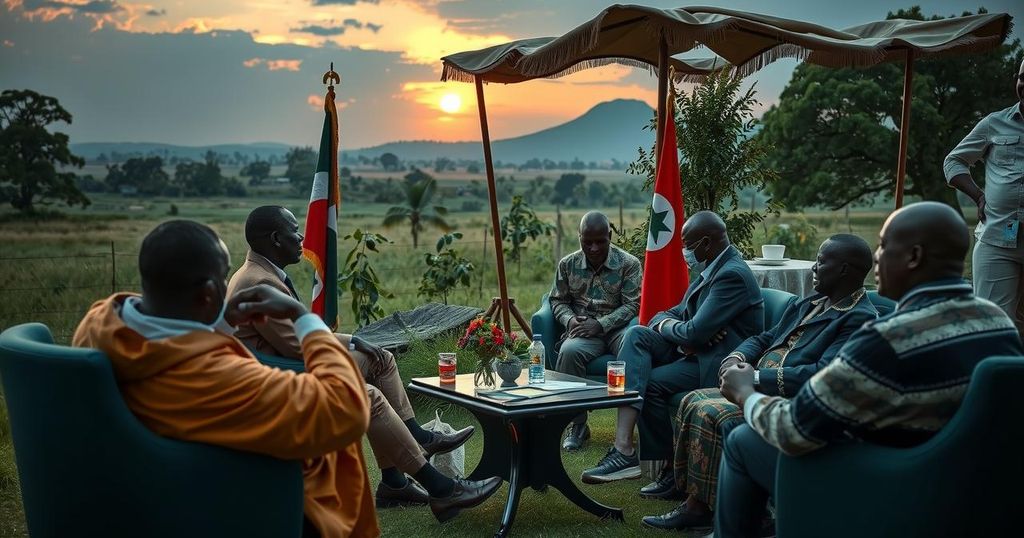South Sudanese factions, including the National Salvation Front, South Sudan United Front, and Real Sudan People’s Liberation Movement, are set to hold peace talks in Nairobi starting November 13, 2024. The negotiations aim to include groups that did not sign the 2018 peace agreement, with the support of IGAD. Slow implementation of previous agreements and funding shortages pose potential risks to the peace process.
On November 13, 2024, representatives from various South Sudanese factions are set to convene in Nairobi for peace negotiations. The primary objective of these talks is to incorporate holdout groups, such as the National Salvation Front (NAS) led by Pagan Amum, the South Sudan United Front (SSUF) helmed by former army chief Paul Malong, and the Real Sudan People’s Liberation Movement (R-SPLM) led by Stephen Buay, into the 2018 peace framework. The Intergovernmental Authority on Development (IGAD) is expected to play a significant role in facilitating the discussions. These upcoming negotiations are designed to adhere to the principles established in the 2018 agreement, which formally concluded years of conflict in South Sudan, established between President Salva Kiir and opposition leader Riek Machar. However, it is critical to note that the progress of the peace process faces challenges due to the slow execution of the original deal, along with critical financial constraints that could impede advancements. Kenyan President William Ruto confirmed last week that all parties involved had reached a consensus to initiate the dialogue in Nairobi.
The 2018 peace agreement marked a pivotal moment in South Sudan’s tumultuous history, effectively halting a prolonged civil war that ensued after the nation’s independence in 2011. However, several groups—including NAS, SSUF, and R-SPLM—did not sign the original accord, leading to ongoing clashes and instability in the region. The role of IGAD, a regional bloc focused on promoting peace and development, is vital in these negotiations to ensure that all factions work towards a unified resolution for the country.
In conclusion, the peace talks scheduled in Nairobi represent a significant opportunity for South Sudan to address the internal divisions that continue to threaten its stability. By engaging holdout factions in a dialogue based on the terms of the 2018 agreement, there exists a pathway towards comprehensive reconciliation. However, the success of these talks will hinge on the commitment of all parties to overcoming existing challenges, particularly relating to implementation and resource allocation.
Original Source: sudantribune.com






